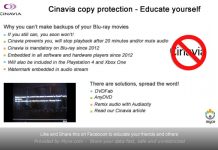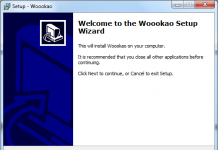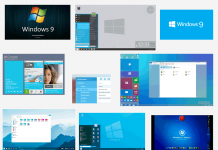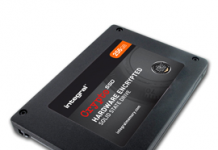Okay, I'm pissed off. I'm having a hard time respecting the record industry's attempt at copy protection if they are going to use inserted noise as a method. This so wrong. It is a cheap shot if you ask me.
If they are going to put real protection on the Cd to prevent copying, then do that '“ but so far all their tries have been pitiful. In a time when DVD-A is coming out & we are looking for improved sonics, this is not a time to degrade the quality of the music just so I can't put the song into my Rio player.
Which reminds me. I paid for the new Radiohead Cd. The first thing I did was rip it & put it in my Rio player & cruise into town in my new Cdfreaks.com T-shirt with my headphones on, enjoying the new Cd. It is wrong for the record industry to prevent this or even attempt to prevent it. I paid. I love a *no moving parts audio portable such as my Rio Mp3 player.
So in effort to respect their attempt, we need to put these half-assed attempts at copy protection to shame. The way one of these copy protection schemes work (Cactus) is simply that they are adding bursts of noise into the music as actual data error. It isn't real noise '“ it's a lot of error. The error correction in normal Cd players corrects these errors by interpolating the data using the data before & after the moment of error or noise.
Error correction:
There is a preset amount of error or B.E.R. allowed. B.E.R. is Bit Error Rate. This is so that the lens does not have to read the data pits perfectly & also so that scratched Cds will still play fine. It is called Solomon-Reed. It is named after the inventors: Irving Reed and Gustave Solomon. There is a preset amount of error or B.E.R. allowed. B.E.R. is Bit Error Rate. {By the way, this error-correction technology must be somewhere within each one of our Cd-Rom drives as each Cd-Rom drive *does have an analog audio output!}
I quote from one of the web pages below: |
Error correction in digital audio works in a similar fashion to spelling checkers in some word processors. Some word processors fix spelling mistakes as you type. For instance, you may type the word yis...the spelling checker finds the error and changes the word to yes. It does this by looking at the y and s and after comparing yis to a data bank of words assumes it was supposed to be yes..
There are two basic kinds of errors.
1. Random-bit. Errors that have no relation to each other occur singly and are easily corrected. Where individual bits are corrupted.
2. Burst error. Where a sequence of bits are corrupted - e.g. a long scratch in a CD .A large, sustained error caused by noise spikes, connector problems, transmission problems in the connecting cables, defects, dust, etc. Burst error usually results in data and redundant data loss. Correction is difficult. Burst error is a serious phenomenon. The maximum number of continuous error bits that can be corrected is a measure of the quality of a system. Also, a system must be able to correct random and burst errors simultaneously.
1. BER (Bit Error Rate), is one method of testing the integrity of data. BER is the number of bits divided by the total number of bits received. The problem with BER is that it counts large and small burst errors equally and not the distribution of the errors.
2. BLER (Block Error Rate) measures the number of blocks of data per second that have one occurrence of un corrected data.
3. BERL ( Burst Error Length) , counts the number of consecutive blocks in error.
(BLER and BERL determine the rate of error per second. BER determines the total count.).
So they are assuming when we rip the track we will get the audible noise because audio extraction merely converts the data to a wave file, which does not use error protection. So all we need to do is make a plug-in for EAC & Audiograbber so that when the track is ripped, it passes through the error-correcting plug in & outputs a wave file that would be equivalent to one that would come from playing the cd in the conventional player. There really is no reason at all that we have to depend on real-time Solomon-Reed error correction. A good efficient software plug in should be able to fix the bursts of noise at a similar rate to making an actual mp3; depending on each one of our Pc's capability.
In other words, when I rip a cd track, it should first run through the error-correcting plug in, then the normalization & then to mp3. If you use Sound Forge or Wavelab or any other similar wave editor you know it is possible to do almost anything with the wave file. One plug in will actually fix all bad notes that the singer sang. Another plug in gives me the same functions of a BBE hardware audio processor except it's in a plug in format. Another plug in uses 'digital modeling" technique to accurately reproduce a $3000 vacuum tube compressor '“ so to use the same error-correction shouldn't be a problem. It is all done using DirectX technology. (VST plug ins are used as well & are considered to be more efficient.)
To the coders:
I call out to the coders '“ you know who you are '“All I can do is provide information to help you fully understand the error correction that is in the conventional Cd player so that you can write a DirectX plug in. I will list several web pages that can be studied so that the Solomon-Reed error correction is fully understood. Some of these websites already offer C++ language error correction software. Please be aware: I am not a coder '“ I am a music lover who doesn't want my cd quality audio damaged so that I cannot copy it. The day they make a copy protection that cannot be hacked I will respect it.
Here are various web pages all about the Reed-Solomon error correction coding. Be sure to post your thoughts & your progress on the E.a.c. / Audiograbber plug in. Thanks.
Technical :
http://csunix1.lvc.edu/~snyder/errors.html
http://www.siam.org/siamnews/mtc/mtc193.htm
http://www.ece.wpi.edu/courses/ee535/hwk97/hwk4cd97/bad/bad.html
http://csunix1.lvc.edu/~snyder/correct.html
http://www.4i2i.com/reed_solomon_software.htm
http://www.radiodesign.com/rs_sale.htm
Other Interesting Pages & Basics '“
http://hotwired.lycos.com/synapse/feature/97/29/silberman2a_1.html
http://www.4i2i.com/reed_solomon_codes.htm
http://www.hrrc.org/ = organization in charge of fighting for our home recording rights.










